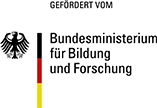The World Trade Organization (WTO) is an international organization that deals with the rules of trade between nations. The organization was established in 1995 and has 164 member countries.
Recently, the WTO has been working on an agreement incorporated proposal that would provide greater transparency and predictability in the area of government procurement. The proposal would apply to all WTO member countries and would require them to follow certain rules and procedures when it comes to government procurement.
The proposal would require all member countries to publish their procurement laws, regulations and procedures online in a transparent and easily accessible manner. This would make it easier for businesses to understand the rules and regulations governing government procurement in different countries.
Moreover, the proposal would also require member countries to provide advance notice of procurement opportunities, offer equal treatment to foreign bidders, and ensure that procurement decisions are made objectively and fairly.
The benefits of the proposal are numerous. First, it would promote fair competition among businesses by ensuring that foreign bidders have access to procurement opportunities on an equal footing with domestic bidders. Second, it would increase transparency, which will help to reduce corruption in government procurement. Third, it would provide greater predictability in the procurement process, which would benefit businesses by allowing them to plan and invest more effectively.
However, there are some concerns regarding the proposal. Some member countries fear that it may place an unnecessary burden on their procurement systems, and others worry that the proposal may not be suitable for their specific needs.
Overall, the WTO agreement incorporated proposal is a step in the right direction towards greater transparency, predictability and fairness in government procurement. While there are concerns that need to be addressed, the proposal has the potential to benefit businesses and governments alike by promoting fair competition and reducing corruption.
